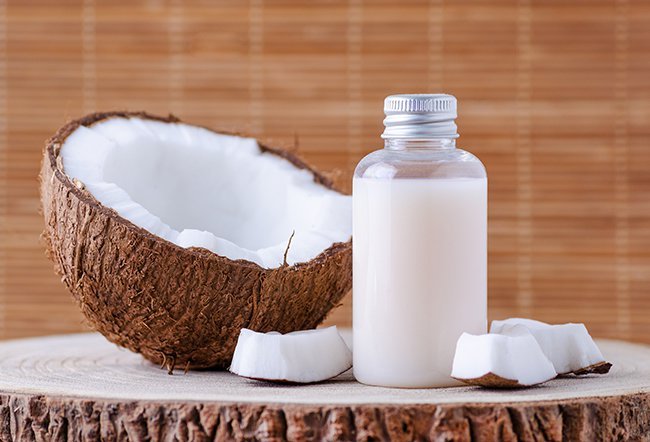What Is Coconut Oil Good For?

Coconut oil is omnipresent these days, from supermarkets to influencers, all seem to be lauding it as a wonder for health and beauty. The oil is recommended for use in various ways, including application on the skin and scalp and preparation of foods and beverages. Many of the claimed benefits of coconut oil, however, are not backed by sufficient scientific evidence. Hence, it is good to exercise caution and ask your doctor, especially while using it for managing health conditions.
Some of the proposed health benefits of coconut oil include:
- Good for the hair
- Applying a little amount of lukewarm coconut oil on the scalp and hair may help keep away dandruff and frizz while making the hair smooth and shiny. Coconut oil is rich in nutrients that are great for the hair, including vitamins E and K and iron. Hence, adding some coconut oil to a balanced diet may help keep hair woes at bay.
- Good for the skin
- Massaging the skin with a few drops of coconut oil helps keep it supple and moisturized. Avoid it, however, if your skin is oily or acne-prone.
- Application of virgin coconut oil may help control eczema.
- Although there is not enough evidence, some studies suggest that coconut oil may help keep away fungal infections and relieve psoriasis symptoms.
- Some studies show that a mixture of coconut, anise, and ylang-ylang oil when sprayed on the hair and scalp can treat head lice in children.
- May improve heart health
- Although there is a lack of sufficient evidence, some researchers have suggested that coconut oil consumption may unclog arteries and increase good cholesterol (high-density lipoprotein or HDL cholesterol) levels. Recent studies, however, suggest that coconut oil increases both bad (low-density lipoprotein) and good cholesterol levels. Thus, it may not reduce the risk of heart conditions including heart attacks.
- May promote newborn health
- It is suggested that massaging newborns with coconut oil may help prevent skin infections and promote weight gain and growth in premature infants.
- Coconut oil may also be good for
- Gut health
- Oral health
- Alzheimer’s disease
- Inflammatory bowel disease
- Thyroid diseases
- Chronic fatigue
- Diabetes
- Weight management
- Breast cancer
- Other chronic health conditions
What are the nutrients present in coconut oil?
Coconut oil is a popular plant-based fat derived from the fruit of coconut palm. Although it is called an oil, it is generally solid at room temperature because of its high saturated fat content.
| Nutrients | Amount of Nutrients |
|---|---|
| Energy | 96.6 kcal |
| Fats | 11.5 grams (of which about 9.57 grams are saturated fats) |
| Protein | None |
| Carbohydrates | 0.097 grams |
| Vitamin E | 0.013 mg |
| Vitamin K | 0.07 mcg |
| Calcium | 0.116 mg |
| Iron | 0.006 mg |
| Zinc | 0.002 mg |
Can coconut oil harm your health?
Coconut oil is rich in saturated fats that make about 80 to 90 percent of its total fat content. According to the American Heart Association (AHA), the diet must be low in saturated fats because they increase the risk of cardiovascular diseases, such as heart attack and stroke. Coconut oil is high in calories, about 120 calories are provided by a tablespoon (15 grams) of coconut oil. Thus, if total calorie intake and physical activity are not kept in check, people may end up gaining weight by consuming coconut oil above their calorie needs.
Coconut oil is rich in a type of saturated fats called medium-chain fatty acids. These fats are less likely to be deposited in the body or raise blood cholesterol levels compared to the long-chain fatty acids. Nonetheless, there is not enough data to support whether coconut oil consumption will lead to weight loss or lower the risk of heart attacks. Thus, although there are no dangerous or ill effects of coconut oil when consumed in moderation, a person must not use it for health conditions, such as diabetes or high blood cholesterol, unless their doctor approves it.
As far as weight loss is concerned, there is no magic ingredient in a weight loss diet. Thus, stick to the good old advice of staying physically active and restricting the calorie intake to lose weight.
